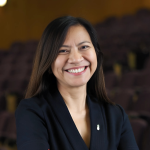
People
Find out more about our staff in the Faculty of Arts, Business and Social Sciences.
Senior faculty staff
Executive dean

Professor Bebhinn Donnelly-Lazarov
Interim Pro-Vice Chancellor and Executive Dean, Faculty of Arts, Business and Social Sciences
Associate deans

Mark Ashton
Associate Dean (Education)

Professor Bonnie Buchanan
Associate Dean (International)

Professor Andrew King
Associate Dean (Doctoral College)

Professor Glenn Parry
Associate Dean (Research and Innovation)
Heads of school

Professor Jo Blanden
Interim Head, School of Social Sciences

Professor Patricia Pulham
Head of School of Arts, Humanities, and Creative Industries

Professor Iis Tussyadiah
Dean of Surrey Business School
Professional services staff

Karen Hearty
Faculty Finance Manager

Lois Moor
HR Manager

Chris Rapley
Director of Faculty Operations

Michelle Rimmington
Operations & Facilities Manager

Ivelina Yonova
Faculty Research and Innovation Manager (FASS)
Faculty staff
See a full list of staff in our schools and disciplines.